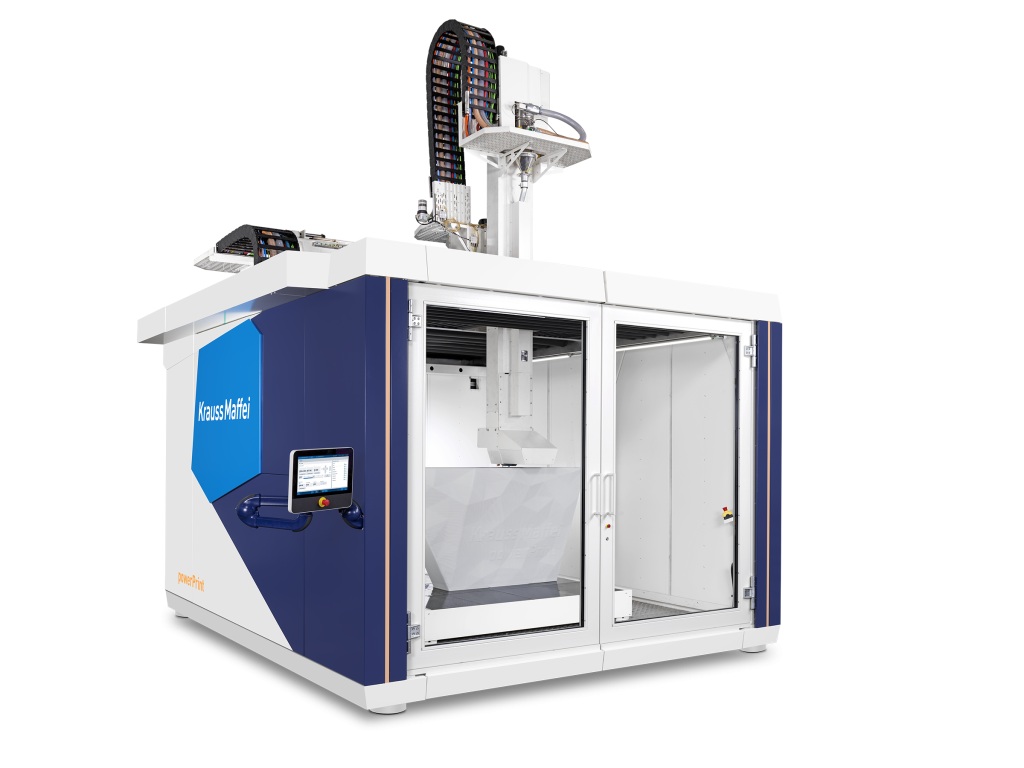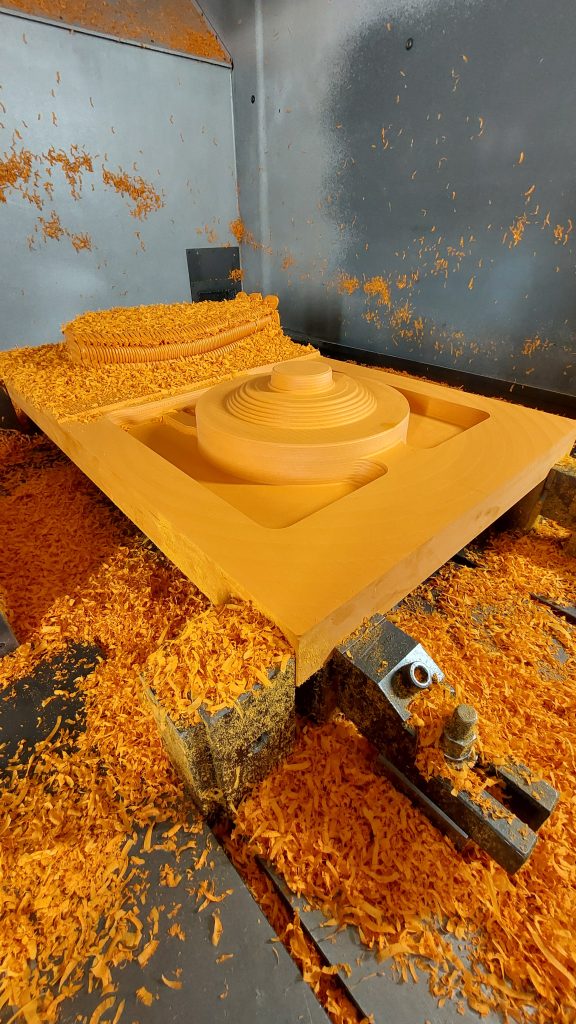German plastic machinery OEM KraussMaffei is offering an end-to-end 3D print on-demand service featuring its large-format powerPrint 3D printer.
Through this service, the company provides in-house data-optimization, 3D printing, and milling.
According to KraussMaffei, this end-to-end offering enables the production of 3D printed parts which possess a ‘mirror-smooth’ surface finish of up to RZ 12. Moreover, this service allows customers using Ureol to leverage more break-resistance 3D printed PETG F30, which features 30% glass-fiber reinforcement.
Manufacturing projects are completed internally between KraussMaffei’s additive manufacturing site in Parsdorf, and Harderberg-based toolmaking facility.
“We initially tried working with external milling companies, but working in-house is of course much more efficient and you also retain the expertise,” explained Ender Murat Ferat, additive manufacturing Project Engineer at KraussMaffei.

KraussMaffei’s in-house end-to-end AM service
Prior to this collaboration, KraussMaffei’s team in Harderberg had been milling parts primarily from Ureol, a polyurethane or epoxy resin saturated with fillers in sheet or block form. However, the team now mills various parts 3D printed from glass fiber reinforced recycled PETG F30.
The powerPrint’s substantial 2 x 2.5 x 2 m (10 m3) build volume allows customers to commission large-scale 3D printed parts for a range of industrial applications. “Our products include prototypes and leatherette models for the automotive industry,” commented KraussMaffei Production Manager, Stefan Springrose.
During the post-processing stage, the team uses dynamic milling machines to achieve high cutting speeds and fast production times. Extremely sharp milling tools are also used to ensure optimized milling of PETG F30. In fact, during testing it was found that diamond-coated milling cutters were needed to withstand the abrasive material.
According to KraussMaffei, the company’s milling process allows surfaces of 3D printed parts to be completely smoothed. Thus far, the team has successfully reached a roughness depth of RZ 12. However, milling shop Team Leader Thorsten Richter claims that even smoother surfaces can be achieved by extending processing times.
One notable use-case of this end-to-end service is a sand casting mold for pressure pads. Here, a negative mold is produced and used to manufacture the actual sand mold, which holds the liquid metal during the molding process. Although the sand mold is destroyed during demolding, the milled 3D body can be reused.
These molds had previously been fabricated from Ureol. However, KraussMaffei now 3D prints the molds from PETG.
Despite the higher material cost per kilo, the 3D printed parts reportedly offer significantly more resistance to breakage. Molds with specific shapes and dimensions can also be 3D printed. According to KraussMaffei, 3D printing the molds to the correct shape and size saves labor costs, making the 3D printed mold cheaper than its Ureol counterpart.

On-demand additive manufacturing
KraussMaffei is not the only company to offer an industrial-scale 3D print-on-demand service. Last year, Switzerland-based robotics 3D printing startup SAEKI raised $2.3 million in seed funding to create an on-demand 3D printing service based around its fully automated “robots-as-a-service” manufacturing microfactories.
SAEKI’s production hubs leverage digital manufacturing and industrial robotics to 3D print large-scale components for the construction, automotive, aerospace, marine and energy verticals. The service offers 24-hour product turnaround time, and seeks to resolve significant bottlenecks within the manufacturing industry.
Elsewhere, Texas-based industrial 3D printer manufacturer Essentium, Inc. launched Essentium Parts On-Demand (EPOD). This in-house production service is based on the company’s High Speed Extrusion (HSE) 3D printing technology.
The service is advertised as providing an open additive manufacturing ecosystem of solutions for producing high volumes of parts quickly and cheaply. EPOD has been adopted by a customer in the oil and gas industry to 3D print PEEK parts. Elsewhere, a customer from the Aviation Technical Operations industry has used the polymer-to-part service to produce over 100 housings made from a bespoke material with flame-resistant qualities.
Subscribe to the 3D Printing Industry newsletter to keep up to date with the latest 3D printing news. You can also follow us on Twitter, like our Facebook page, and subscribe to the 3D Printing Industry Youtube channel to access more exclusive content.
Are you interested in working in the additive manufacturing industry? Visit 3D Printing Jobs to view a selection of available roles and kickstart your career.
Featured image shows the Milling process of the additively manufactured casting model. Photo via KraussMaffei.


